Spies among China’s returning talents: Truth or bias?
A recent observation by the chairperson of China’s GREE that there may be spies among so-called “returning talents” to China has sparked discussion about that possibility, and about whether China’s local tertiary institutions are good enough to nurture the same level of talent as overseas. Lianhe Zaobao senior correspondent Chen Jing explores the issue.
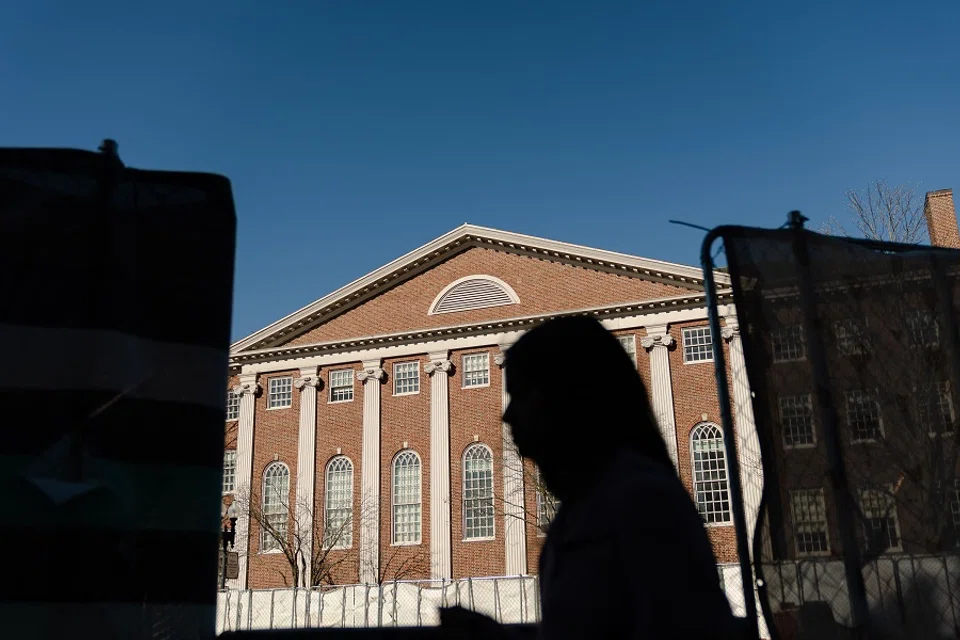
“There are spies among returning talents (海归 haigui, Chinese nationals who have returned home after studying overseas). I don’t know who is or isn’t.”
Dong Mingzhu, chairperson of China’s Gree Electric Appliances (GREE), once more became the focus of public opinion last week due to her provocative remarks.
According to media reports, Dong made the comments on 22 April at GREE’s extraordinary shareholders meeting while discussing how the group plans to promote a younger management team. She first emphasised that Gree values talent development, which cannot be measured by age or seniority, and that the key lies in maintaining youthful thinking, having innovative capabilities, a sense of responsibility and a willingness to strive.
Dong then went on to state bluntly that GREE would “never employ a returning talent” for its talent development because there are spies among them. “I don’t know who is or isn’t, and since I am unable to discern whether someone is a spy, I can only conservatively choose to cultivate our own talents from domestic tertiary institutions”.
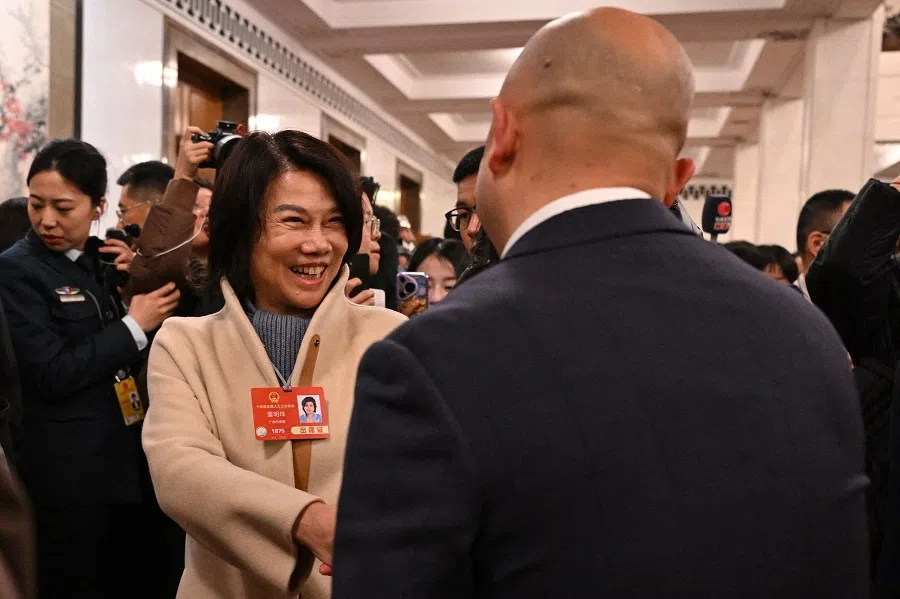
This statement drew laughter and applause from the audience, but once the relevant video circulated online, it quickly stirred up a storm of public opinion.
Quite a number of Chinese netizens supported Dong, believing she “merely spoke the truth plainly”.
Agree or disagree?
The Beijing News (新京报) commented that Dong’s “spies among returning talents” theory defied common sense, and revealed her outdated view on personnel management. The Economic Observer (经济观察报) commented that simplifying talent selection into a dichotomy of “domestic” against “returning talents” could trigger a chilling effect within China, and even make people overseas doubt China’s commitment to openness.
Hu Xijin, former editor-in-chief of China’s state-run Global Times, also posted multiple Weibo messages criticising the “spy theory” as discrimination, which violates the principles of the Labour Law, and demanded that Dong apologise for her remarks.
In contrast to the unanimous criticism from media professionals, quite a number of Chinese netizens supported Dong, believing she “merely spoke the truth plainly”.
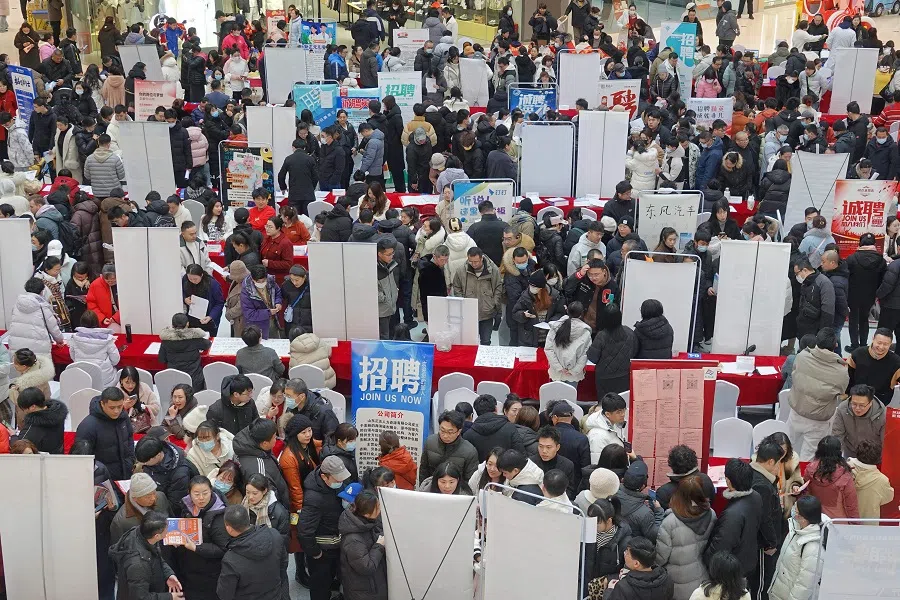
Some netizens referenced a major espionage case disclosed by officials earlier this month, where the suspect was recruited while studying abroad and later infiltrated a key confidential unit upon returning to China, indicating that Dong’s words were not unfounded.
Others argued that compared to scientists like Qian Xuesen and Deng Jiaxian, who gave up favourable conditions overseas to return to China decades ago, many of today’s returning talents were not exceptional. They could afford to study abroad only because of their affluent family backgrounds; their return was not to serve the motherland, but because they were unable to find success abroad.
Data from Zhaopin.com showed that the number of fresh overseas graduates returning to China for employment last year increased by 19% year-on-year, doubling from 2018, with more and more choosing to return to seek employment and development opportunities.
Not hiring returning talents or foreigners
In fact, Dong had previously emphasised multiple times that there were no returning talents or foreigners in GREE’s R&D team. In November 2023, she stated during the China Brand Festival that all of GREE’s more than 13,000 R&D personnel come from domestic universities, with not a single returning talent among them, adding that “we believe Chinese tertiary institutions should be capable of nurturing outstanding talents”.
GREE is not alone in not hiring returning talent. Late last year, Chinese media reported that when Guangdong province recruited civil servants from university graduates, 60 elite overseas universities led by Harvard, Oxford and Cambridge were no longer included in the recruitment.
Similarly, Beijing’s civil service recruitment announcement this year excluded returning overseas students from targeted recruitment, while a training programme for elites, which previously required candidates to have attended a university in the global top 100, now stipulated that undergraduates must study at specific Chinese universities.
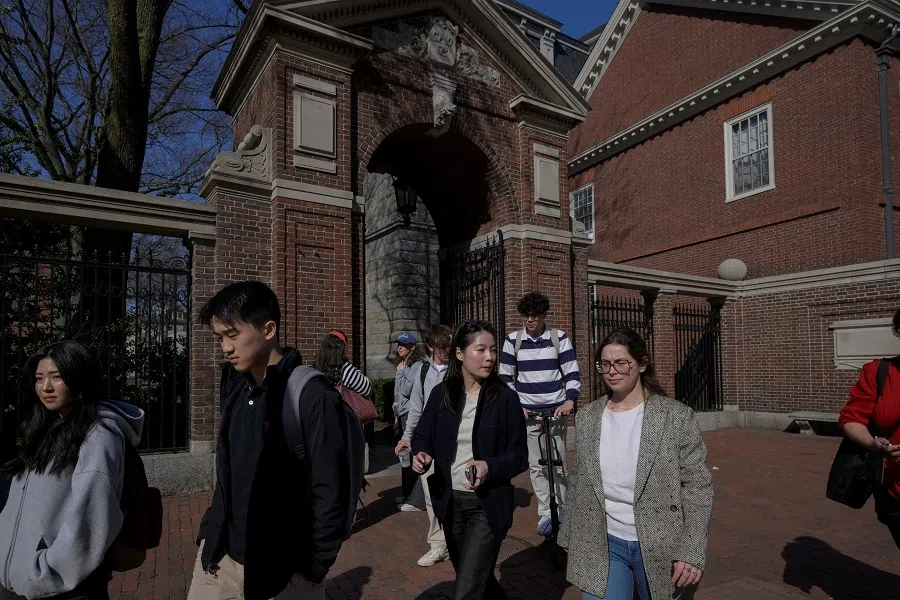
After AI company DeepSeek became a sensation earlier this year, its founder Liang Wenfeng also noted that the team is composed entirely of local talents, most of whom were recent PhD or master’s graduates from domestic universities like Tsinghua University and Peking University, with zero overseas study background.
While returning talents faced more restrictions when job-seeking, the number of individuals in this group continues to rise. Data from Zhaopin.com showed that the number of fresh overseas graduates returning to China for employment last year increased by 19% year-on-year, doubling from 2018, with more and more choosing to return to seek employment and development opportunities.
Ironically, Chinese scholars that were suppressed as spies in the US could be perceived as spies by their compatriots upon returning home.
Top scientists returning
Moreover, at least 20 top Chinese scientists returned from overseas to China last year, with nearly 80% coming from the US. One of the reasons driving these scientists to leave the US and return to China was the China Initiative launched during President Donald Trump’s first term, which targeted Chinese scientists and researchers with connections to China under the pretext of combating economic espionage, conducting investigations on them.
Ironically, Chinese scholars that were suppressed as spies in the US could be perceived as spies by their compatriots upon returning home. Following the commencement of the China-US trade war, Chinese students faced the risk of having their visas revoked abroad while also having to deal with discrimination in their homeland.
Dong’s remarks clearly reflect overgeneralisation and overreaction; yet undeniably, she represents the view of a significant part of the population. Rather than criticising the idea of spies among returning talents, it is more thought-provoking to consider why such sentiments are on the rise. Could the spread of resentment be due to the overall economic downturn, or the intensification of antagonistic sentiments due to the decoupling between China and the US?
... it is becoming increasingly challenging for China to achieve a balance between openness and security while ensuring diverse yet loyal talent.
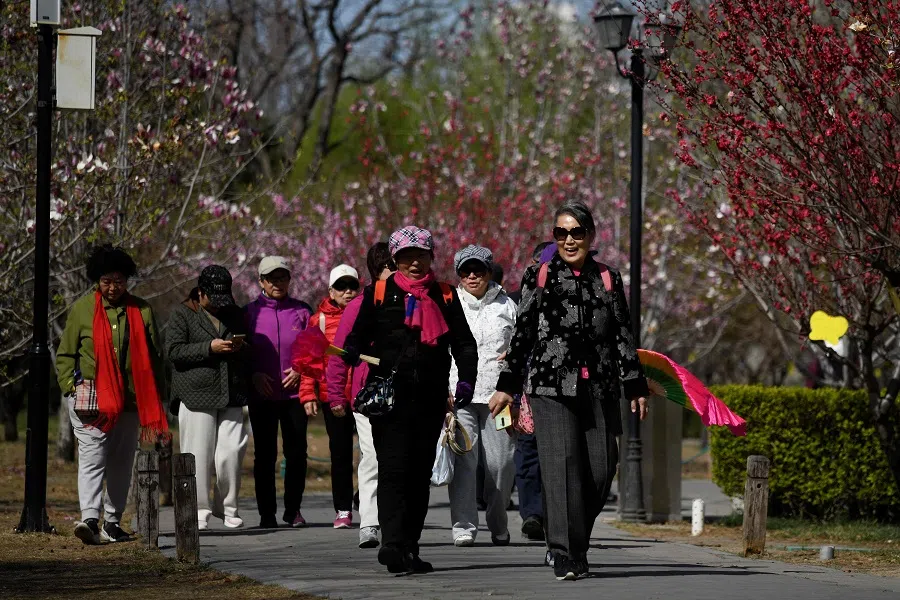
Of course, many Chinese enterprises even larger than GREE — such as tech heavyweights like Alibaba, Tencent and Huawei — continue to actively hire returning talents to consolidate and strengthen their global competitiveness. Furthermore, at the end of last year, China’s Ministry of Human Resources and Social Security, Ministry of Education and other departments jointly issued a document seeking views on further improvements to retain returning talents for work and service, looking to attract more returning talents to go back to China to work, serve and be entrepreneurs.
However, given the discrepancy between official policy and execution on the ground, the “spies among returning talents” theory is gaining traction in public opinion, illustrating to a certain extent that in the context of escalating geopolitical conflict and intensified China-US decoupling, it is becoming increasingly challenging for China to achieve a balance between openness and security while ensuring diverse yet loyal talent.
This article was first published in Lianhe Zaobao as “海归间谍论”是偏见还是实话?”.
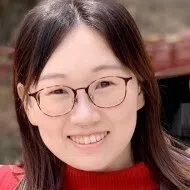
![[Big read] Paying for pleasure: Chinese women indulge in handsome male hosts](https://cassette.sphdigital.com.sg/image/thinkchina/c2cf352c4d2ed7e9531e3525a2bd965a52dc4e85ccc026bc16515baab02389ab)


![[Big read] How UOB’s Wee Ee Cheong masters the long game](https://cassette.sphdigital.com.sg/image/thinkchina/1da0b19a41e4358790304b9f3e83f9596de84096a490ca05b36f58134ae9e8f1)
